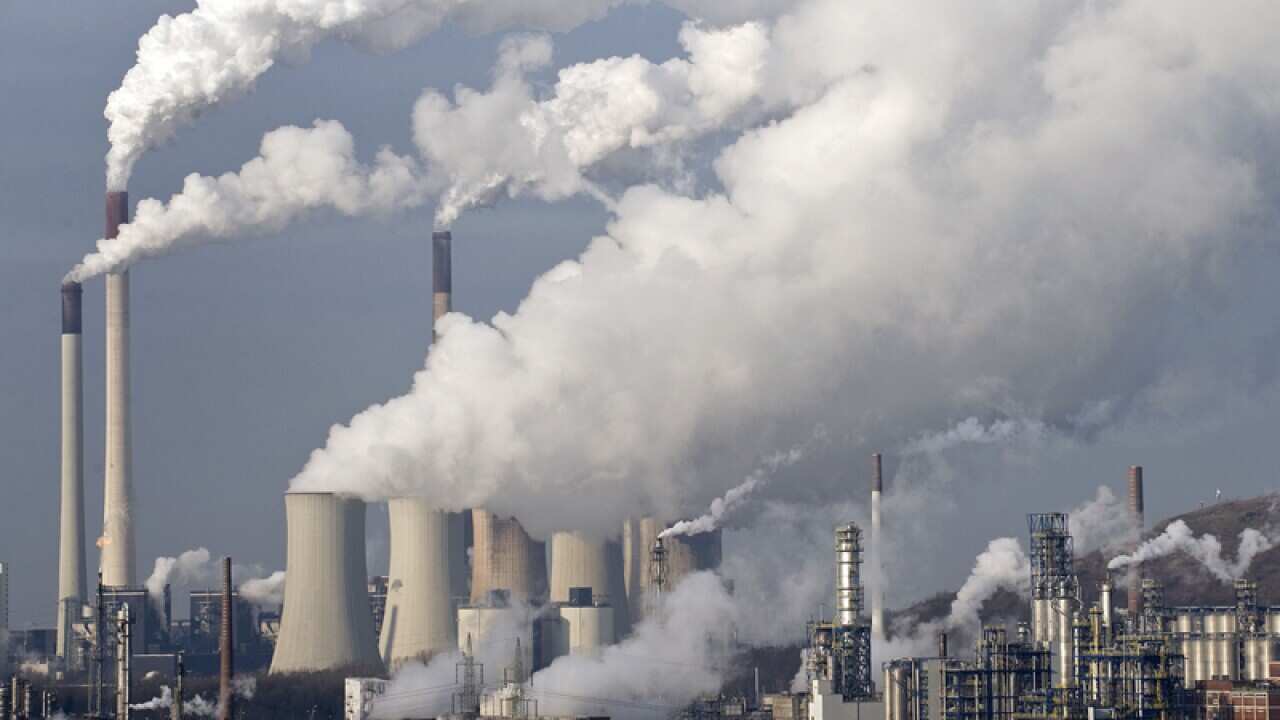Australia is facing pressure from Europe, the United Nations, scientists and the environment movement to ensure the G20 leaders' summit makes a clear statement on climate action.
In a landmark report, the Intergovernmental Panel on Climate Change says emissions of three key greenhouse gases are at their highest in more than 800,000 years.
This is putting the planet on track for at least 4C warming over pre-industrial times by 2100.
IPCC chief Rajendra Pachauri says emissions need to drop by 40 to 70 per cent globally between 2010 and 2050, falling to zero or below by 2100.
UN chief Ban Ki-moon says it shows the need for decisive action.
The report is the last to be released before talks in Paris in 2015 for countries to set their post-2020 emission reduction targets.
The issue of energy efficiency is on the agenda for the G20 summit, which Prime Minister Tony Abbott is hosting later this month, but it is understood climate change may not warrant more than a paragraph in the final leaders' communique.
Outgoing European chiefs Jose Manuel Barroso and Herman Van Rompuy said European nations would push for measures to strengthen energy markets, ensure national economic growth strategies include energy efficiency and the phasing out of fossil fuel subsidies.
"In addition we will argue for G20 leaders to give a strong impulse for a robust and dynamic climate agreement at (the UN climate summit) in 2015 in Paris," they said in a statement.
European Union leaders have committed to a 40 per cent cut in emissions by 2030 and 27 per cent of power coming from renewable sources.
Environment Minister Greg Hunt said predicting what would happen by 2100 was "getting a little bit ahead of ourselves".
"What does matter is that we take practical progressive steps to be more efficient, to reduce emissions," Mr Hunt said.
Labor environment spokesman Mark Butler said Australia risked being seen as a pariah state, having axed the carbon pricing scheme and putting little effort into addressing the issue.
"Australia was once a world leader in climate change action, but our prime minister refuses to acknowledge the risk that not taking meaningful action poses to our economic, social and environmental future," Mr Butler said.
Liberal MP Denis Jensen called the IPCC report's modelling "lousy" and said any scientific report that had to "argue consensus" was weak.
Meanwhile, visiting G20 delegates won't get to see a billboard planned by WWF, Oxfam and Greenpeace at Brisbane airport.
The #onmyagenda campaign wanted its billboard in the arrivals hall but says it was advised it had been rejected as being too political.
WWF-Australia chief Dermot O'Gorman said there would be no solution for climate change unless G20 countries were on board.
"These countries are responsible for around 80 per cent of global emissions and more than 80 per cent of global economic activity," Mr O'Gorman said.

